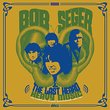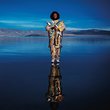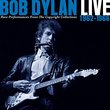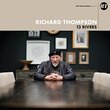| All Artists: Alice Coltrane Title: Spiritual Eternal--The Complete Warner Bros. Studio Recordings Members Wishing: 3 Total Copies: 0 Label: Real Gone Music Release Date: 9/7/2018 Genre: Jazz Style: Number of Discs: 2 SwapaCD Credits: 2 UPC: 848064006923 |
Search - Alice Coltrane :: Spiritual Eternal--The Complete Warner Bros. Studio Recordings
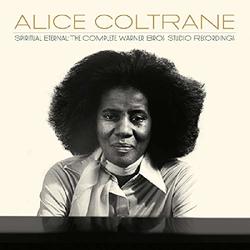 | Alice Coltrane Spiritual Eternal--The Complete Warner Bros. Studio Recordings Genre: Jazz
After the death of John Coltrane, Alice Coltrane embarked upon a solo career that was marked with the same uncompromising vision, spiritual probing, and formal innovation as that of her husband. Her first seven solo albums... more » |
Larger Image |
CD Details
Synopsis
Product Description
After the death of John Coltrane, Alice Coltrane embarked upon a solo career that was marked with the same uncompromising vision, spiritual probing, and formal innovation as that of her husband. Her first seven solo albums were recorded for the Impulse! label, home to John during the latter part of his career; those records saw her branch out in unexpected ways, introducing new instruments (harp, Wurlitzer organ), new styles (raga, modern classical), and new approaches to recording, even incorporating classical string sections into a ?free? musical environment. By the mid-?70s, however, the Warner Bros. label was aggressively pursuing a number of Impulse! artists, with Alice at the top of the list. Spiritual Eternal?The Complete Warner Bros. Studio Recordings brings together, for the first time ever, the three studio albums that Alice Coltrane cut for the Warner Bros. label, albums that proved to be her final commercial recordings of the 20th century. Though it is difficult to characterize such an eclectic and far-reaching collection of music, several things hold true throughout these three records, recorded from 1975 to 1977 with Ed Michel as producer. The first is that Alice?s instrument of choice was increasingly the Wurlitzer organ, specifically a 1971 Wurlitzer 805 Centura that included an Orbit III analog synthesizer with pitch-bending ability as one of its three manuals?a feature she used liberally and which further distinguished her sound. The second is that these albums reflect the increasing importance of Coltrane?s religious studies in her life. By 1975, she was leading weekly ashrams devoted to traditional Hindi chants, and the music and participants in those services began to filter into the albums she recorded for Warner Bros. Thus, while 1976?s Eternity, her incredibly diverse maiden release for the label, employed professional vocalists and well-known jazz musicians like Charlie Haden, Ben Riley, and Hubert Laws (with a cameo from Carlos Santana), her next record, Radha-Krsna Nama Sankirtana, featured members of Coltrane?s growing ashram. Her last album for Warner Bros., Transcendence, furthered the transition; here, Coltrane (now going by the name Turiyasangitananda or Turiya for short) incorporated full-fledged lead vocalists from the ashram into her music, adding a distinct African-American gospel vibe to the proceedings. These tracks proved to be the last commercial studio recordings she made until 2004?s Translinear Light. But her stay at Warner Bros., while short-lived, produced some of the most challenging, spiritual, and, ultimately, rewarding work of her career. Now, Real Gone Music, with the full cooperation of the Coltrane estate, is proud to present Spiritual Eternal?The Complete Warner Bros. Studio Recordings, a collection that offers all of Alice Coltrane?s groundbreaking studio sides for the label in one sumptuously annotated and packaged 2-CD set. Inside the 6-panel digipak is a beautiful booklet boasting notes by noted Coltrane scholar Ashley Kahn based on interviews with Coltrane producer Ed Michel and engineer Baker Bigsby, along with rare photos and the original (quite lengthy!) album credits. Produced by Real Gone?s own Gordon Anderson and acclaimed jazz reissue producer Zev Feldman?who helmed the widely hailed John Coltrane release, Offering?Live at Temple University?and featuring a fresh remastering by Mike Milchner, engineer on Real Gone?s recent Ornette Coleman release, Ornette at 12/Crisis, Spiritual Eternal?The Complete Warner Bros. Studio Recordings provides a new, immersive opportunity to assess and appreciate one of the most dazzling bodies of work to emerge from the ?70s.
Similar CDs
| Kamasi Washington Heaven And Earth Genre: Jazz Label: Young Turks | |
| The Band Music From Big Pink - 50th Anniversary Genre: Pop Label: Capitol | |
| Richard Thompson 13 Rivers Genre: Rock Label: New West | |

 Track Listings (10) - Disc #1
Track Listings (10) - Disc #1
